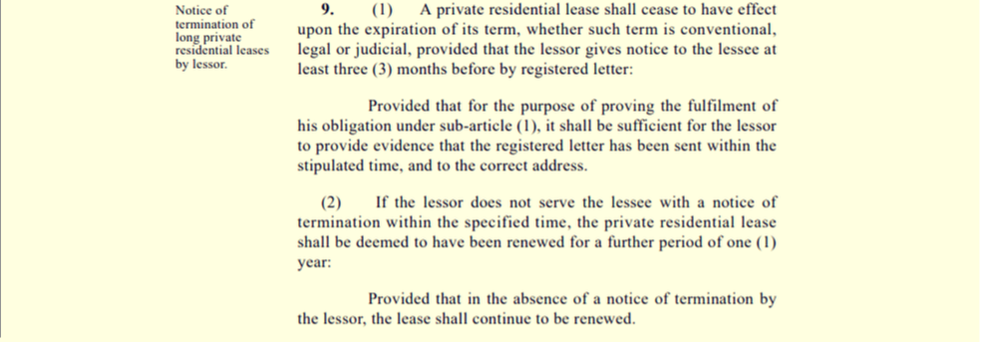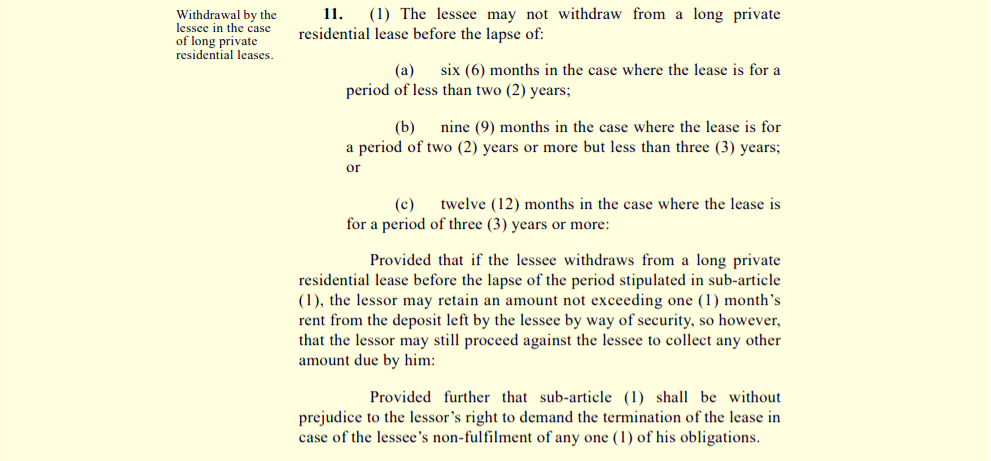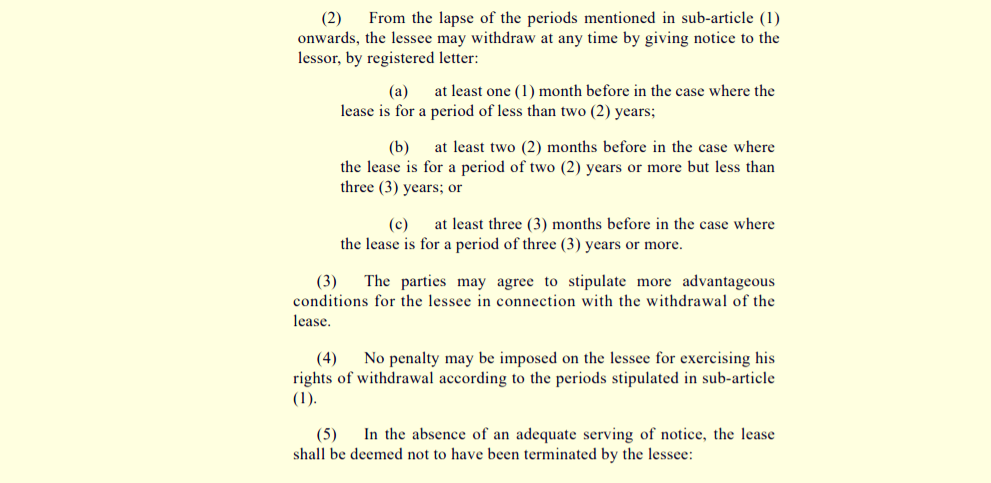Standard long let residential contract taken from the official Housing Authority website below this blog.
Before the 2020 Residential Leases Act, the practice of letting the property for a period of 9 months, for example, in off peak season, and then to tourists as a holiday let in peak season was probably one factor causing rents to spiral ever upwards. This also caused huge insecurity for tenants caught in this situation.
Therefore, long private residential leases cannot have a duration of less than 1 year. This means that a contract of 8 months, for example, will be considered to be a contract for 1 year.
Therefore, long private residential leases cannot have a duration of less than 1 year. This means that a contract of 8 months, for example, will be considered to be a contract for 1 year.
Before the 2020 Residential Leases Act was enacted, tenants were kept in the dark as to whether or not the landlord was going to renew the contract until very close to the end of the contract. This was another factor causing rents to spiral and also causing huge uncertainty for some tenants. Effectively tenants were sometimes only given days' notice of a sizeable increase in rent, which made the option of looking elsewhere for a property within budget impossible in the limited time available to them.
This problematic behaviour was addressed by the Residential Leases Act. Post 2020, if the landlord does not want to renew the contract, then they must give 3 months' notice of this to the tenant by registered mail. If they do not do this, then the contract is automatically renewed for another year.
This problematic behaviour was addressed by the Residential Leases Act. Post 2020, if the landlord does not want to renew the contract, then they must give 3 months' notice of this to the tenant by registered mail. If they do not do this, then the contract is automatically renewed for another year.
Pre 2020, if a tenant wanted to exit the contract earlier than the end of the contractual term, they would still be held liable for the rent of the remaining contractual period if the property was not let to another party in the meantime. This was problematic for some tenants for various reasons.
In line with many other countries, therefore, tenants can withdraw with no penalty from a long private residential lease:
If the tenant withdraws from a long private residential contract before the lapse of the di fermo periods specified above, then the landlord may retain an amount not exceeding 1 month's rent from the deposit left by the tenant. The landlord may choose to take legal action against the tenant for any other outstanding amount.
In line with many other countries, therefore, tenants can withdraw with no penalty from a long private residential lease:
- after a period of 6 months when the rental contract is for a period of less than 2 years
- after a period of 9 months when the rental contract is for a period of 2 years or more but less than 3 years
- after a period of 12 months in the case where the rental contract is for a period of 3 years or more
If the tenant withdraws from a long private residential contract before the lapse of the di fermo periods specified above, then the landlord may retain an amount not exceeding 1 month's rent from the deposit left by the tenant. The landlord may choose to take legal action against the tenant for any other outstanding amount.
While the landlord must give at least 3 months' notice of their intention to renew the lease or not, the tenant must give the following notice by registered mail:
- 1 month's notice when the contract is for a period of less than 2 years
- 2 months' notice when the contract is for a period of between 2 to 3 years
- 3 months' notice when the contractd is for a period of 3 years or more
This is a standard long private residential contract, taken from the official Housing Authority website:
| long-private-residential-leases.pdf |




 RSS Feed
RSS Feed